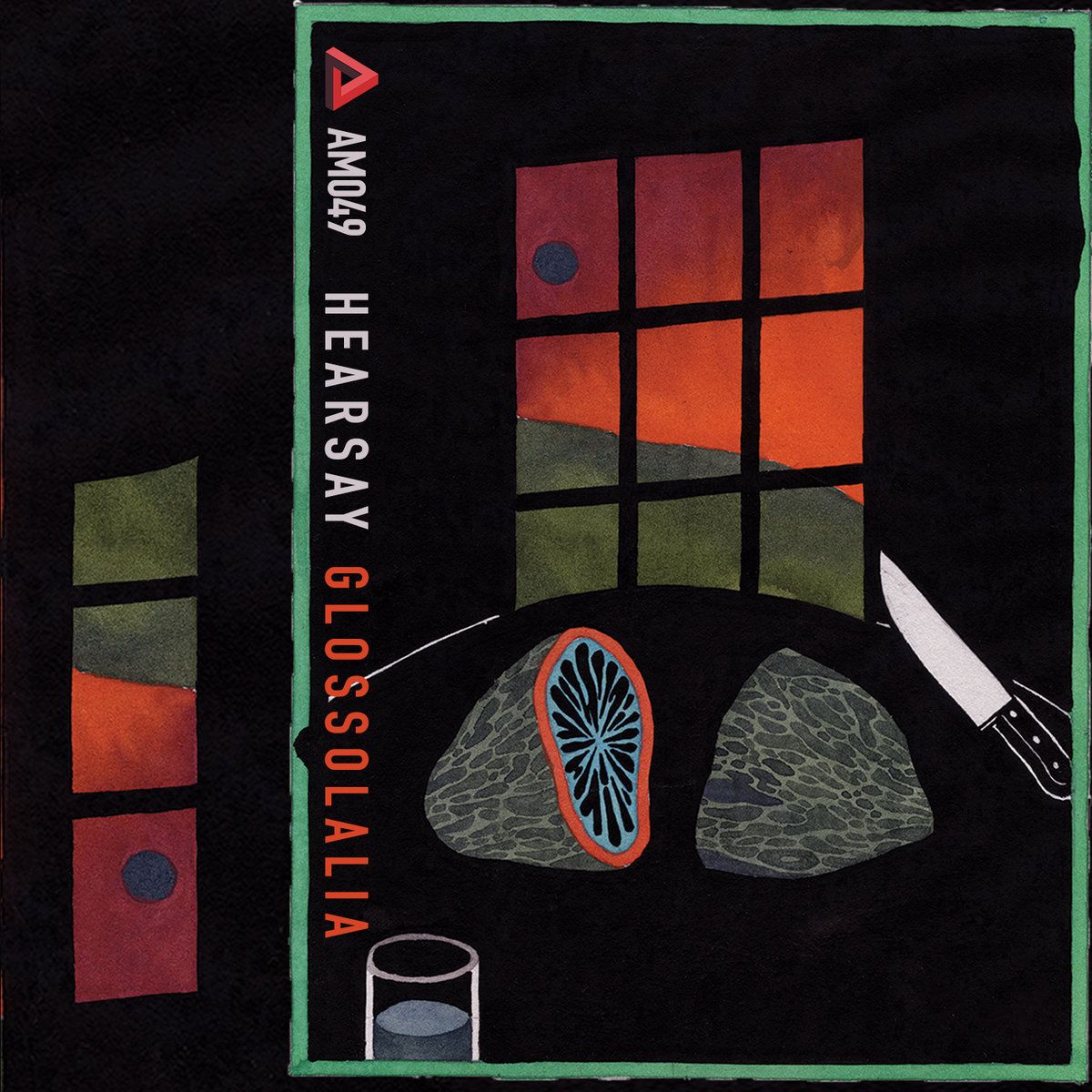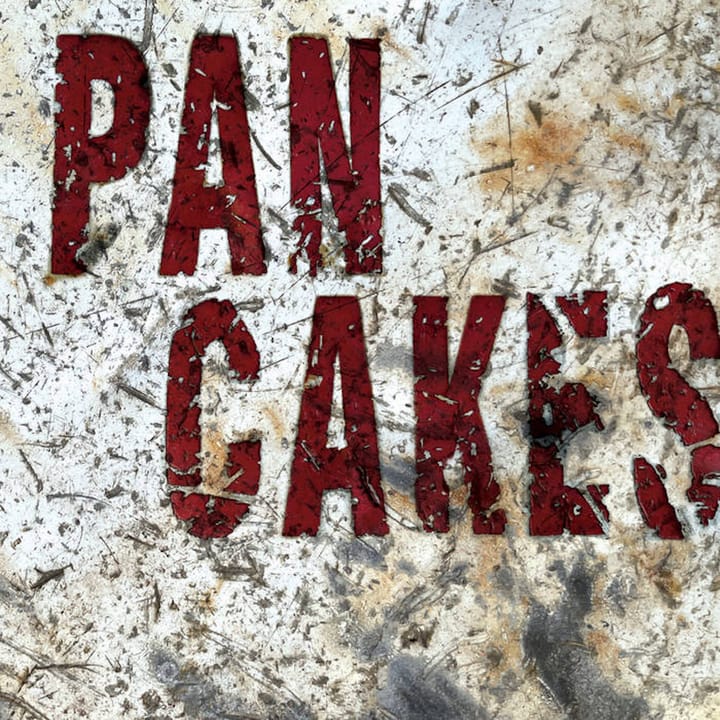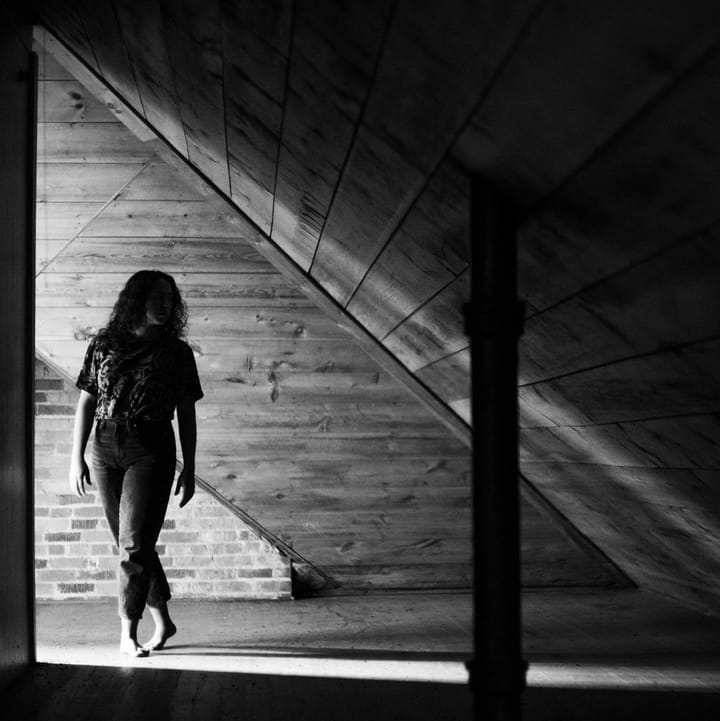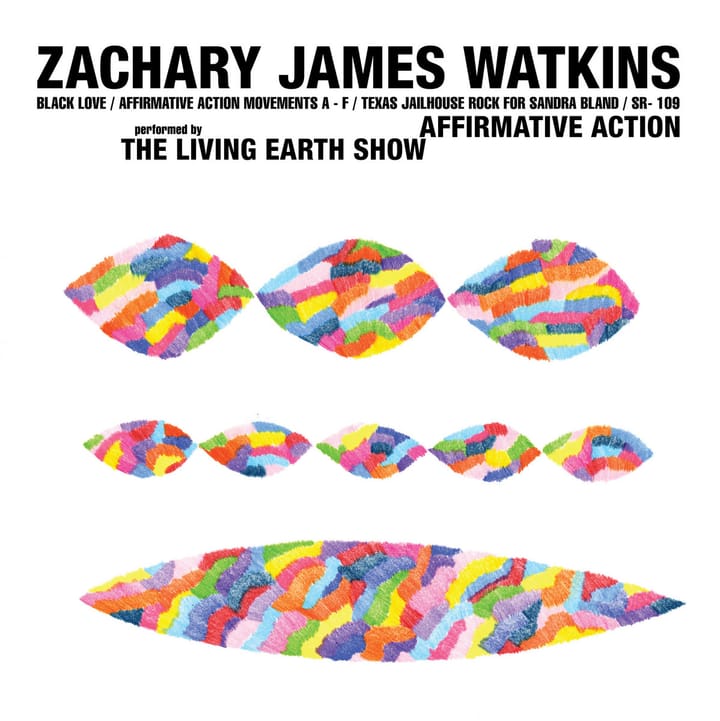Review: Hearsay – Glossolalia
Chicago improvisatory trio for drums, cello/guitar and turntable engage in hall-of-mirrors time-meddling.

In the hands of Chicago's Hearsay, time is putty. Turntablist Allen Moore, drummer Bill Harris and cellist/guitarist Ishmael Ali are forever meddling with the pace of passing seconds, urging eachother to hasten or throttle back, sabotaging the temptation of steady grooves, embarking on giddy tempo curves as if witnessed through warped glass. These six pieces were recorded in two days back in January 2021, although one imagines the music to have sent all attempts at time-tracking into disarray – clock hands drooping, sessions ending earlier than when they started...it's apt that the whole album concludes seemingly mid-phrase: Harris' drumstick lifted, Ali preparing for re-entry, Moore's turntable churn simmering nicely, then silence.
Other forms of time-meddling are in play. Repetition looms large, and there's a tri-directional mimicry happening at all times: drums emulating the stuttered loops of the turntable, babbling cello harmonics inspiring sudden flutters of double-speed vinyl manipulation. The members repeat themselves as well as eachother – Harris' steady smacks of the snare drum on "Glossolalia II. Surface Tension" are like the objects of stoic lab trials, observing how a single sound lands on an undulating surface knobbled by plectrum scrapes and scrunched-up turntable rasp. Meanwhile, Moore's glitched playback of a spoken passage on "Glossolalia I. Precursor" deploys uneven repeats that make the words unintelligible, turning vowels into judders of faltered enunciation, shaking phonemes free of their semantic packets.
It's an instrument configuration in which "louder" is always possible, and one can imagine a version of Glossolalia in which each track meets explosive ends. Hearsay seem aware of this, and their mutual point of focus remains the much more tantalising terrain of false starts and held tongues. Harris pops a toe on the brink of a 6/8 swing during the opener but never commits; Moore sticks largely to gritted-teeth turntable sputter, funk grooves like old paper crumpled in anxious hands; Ali's playing remains wonderfully controlled even at its snarling, agitated edges. They never over-explain, instead perching on the edge of several potential directions of travel. The magic of Hearsay is that they're always keeping their options open, dragging the listener around the swoop of the question mark for a full half-hour.



